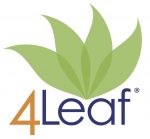There is an overwhelming state of confusion regarding what humans should be eating.

“When we eat the way that promotes the best health for ourselves, we also promote the best health for the planet.” T. Colin Campbell, PhD.
Think of 4Leaf as a refreshing dose of clarity in an outrageously confusing world of food choices. Let’s start at the beginning.
Life began on this planet about 4 billion years ago. Since then, millions of species of creatures have emerged and Mother Nature provided an eating plan for each one. All but one has followed her plan: The Human Species.
Since emerging as a species some 200,000 years ago, we have drifted far away from our plan, with countless options for everyone. Some options are horrible. Some are super-healthy. Here are a few of them, in no particular order:
Omnivore. Atkins. Vegetarian. Grapefruit. Nutritarian. Paleo. Ovo-vegetarian. Sears. Dash. TLC. Dukan. Weston A. Price. Mediterranean. Lacto-vegetarian. Engine 2. Fruitarian. Macrobiotic. Blood-Type. Ornish Program. Flat Belly. Pescatarian. Mayo Clinic. Vegan. Lacto-Ovo Vegetarian. South Beach. Forks Over Knives. Eat to Live. Dr. Esselstyn Plan. Zone. Pesca-Ovo-Lacto Vegetarian. Carnivore. Raw vegan. Hallelujah. Kosher. Weight-Watchers. Flexitarian. Stillman. Beverly Hills. Standard American. Campbell Plan. Graham. Flexitarian. Jenny Craig. Hacker’s. Dr. Barnard’s Plan. Locavore. Pritikin. Biggest Loser. Scarsdale. Nutri-System. 21Day Fix.
Given all of the above confusing choices, coupled with a continuous flow of misinformation and contradiction from industry, government, science, medicine, and the media, the average citizen has almost no chance of discovering a truly health-promoting way to eat.
Furthermore, most medical doctors have little, if any, nutritional training, and the media provides a never-ending flow of contradictory information. The net effect: most people just eat what tastes good, and as a result, we have a $2.8 trillion cost of health care (in just the USA), most of which is driven by what we choose to we eat.
Despite all of the great minds who are working in nutritional science and medicine, over 90% of the wealthiest two billion people in the world are eating a diet that is not only harmful to themselves, but is also extremely harmful to the ecosystem that sustains us. Those few who learn about the absolute lunacy of what we’re doing are thought to be weird and unintelligent for not going along with everyone else. It’s no wonder confusion has been reigning over clarity.
It’s time for some clarity!
How is the average person supposed to figure out what to eat? How can you possibly sort through all of the confusing options and make the best choice for the health of yourself and your family? There is an abundance of scientific and clinical evidence which supports the simple conclusion by Dr. T. Colin Campbell of Cornell that summarizes his life-long career in nutritional science:
“The closer we get to eating a diet of whole, plant-based foods, the better off we will be.”
We need a simple way to compute how we’re doing against that ultimate “whole food, plant-based (WFPB) diet-style” described by Dr. Campbell. No matter what you choose to eat, you can easily compute your 4Leaf score by answering twelve simple questions. EVERY diet-style listed above has a 4Leaf score. No matter how someone is eating now, he/she can easily compute his or her 4Leaf score with our online survey.

Copyright © 2019 4Leaf Global, LLC
So, why do we think Dr. Campbell’s conclusions are so compelling?
- He started his career with a bias against a plant-based diet- he was raised on a dairy farm and was on a mission to help develop ways to feed the world the best kind of animal protein.
- As a Cornell professor, he was the overall director of the massive China-Cornell-Oxford Project, the most comprehensive (30+ years) study of epidemiology ever conducted.
- He dramatically changed his own family’s diet based on what he learned from the science.
- He put his own career at risk to “challenge” the system in the early nineties and has suffered the professional consequences ever since.
- His life’s work on the scientific side has validated the clinical results achieved by a host of courageous medical doctors who discovered these truths on their own, shared them with their patients and saved thousands of lives in the process.
Our 4Leaf Survey is featured in the plant-based nutrition courses offered by eCornell and the T. Colin Campbell Center for Nutrition Studies and our 4Leaf Survey can be taken on the Cornell site at eCornell.com/4Leaf-Survey
CAUTION. Eating this way may quickly decrease your need for medications. You should tell your physician what you’re doing. If he/she is unfamiliar with or skeptical of this eating-style, please direct him or her to nutritionstudies.org and plantrician.org.


